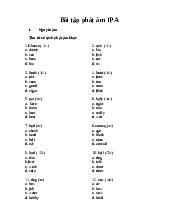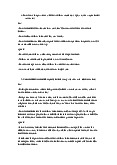

Preview text:
OXFAM: RICH COUNTRIES NEED TO EXPAND AID BUDGETS FOR THE POOR
Rich countries need to make more efforts in the global campaign to
eradicate hunger and reduce poverty, the non-governmental organization
Oxfam International from the UK said in the report "Paying the price" released on December 6.
According to Oxfam, currently aid budgets of rich countries are only
half of what they were in 1960. Meanwhile, poor countries are paying
back $100 million in aid debts every day. "Rich countries are getting
richer, while their aid budgets are shrinking. This absurdity needs to
end," Oxfam Director Barbara Stocking said. If the current trend
continues, an additional 45 million children will die needlessly every
day over the next 10 years, Oxfam warned. "The poorest children in the
world are using their lives to repay debts for the aid and loans policies of
rich countries," Stocking said.
Oxfam stated that rich countries like the US, Germany, and Japan have
broken their commitments made in the 1970s to allocate only 0.7% of
their gross national income to aid. In 2003, the average aid budget of
rich countries accounted for only 0.25% of their national income. In the
US alone, this figure was only 0.14%. Oxfam's report suggests that this
means the Millennium Development Goals set by the United Nations,
such as eradicating poverty, providing education for all, and limiting the
spread of diseases, will be difficult to achieve. "A reasonable aid budget
must be allocated, it is both a moral and legal obligation," Oxfam declared.
Oxfam also mentioned that aid is sometimes used by rich countries as a
political tool, with many nations framing the fight against terrorism as a
necessary goal for their aid programs. Oxfam called on UK Prime
Minister Tony Blair to persuade G8 members to cancel debts for the
poorest countries and double aid fees when he assumes the G8 presidency in 2005.



